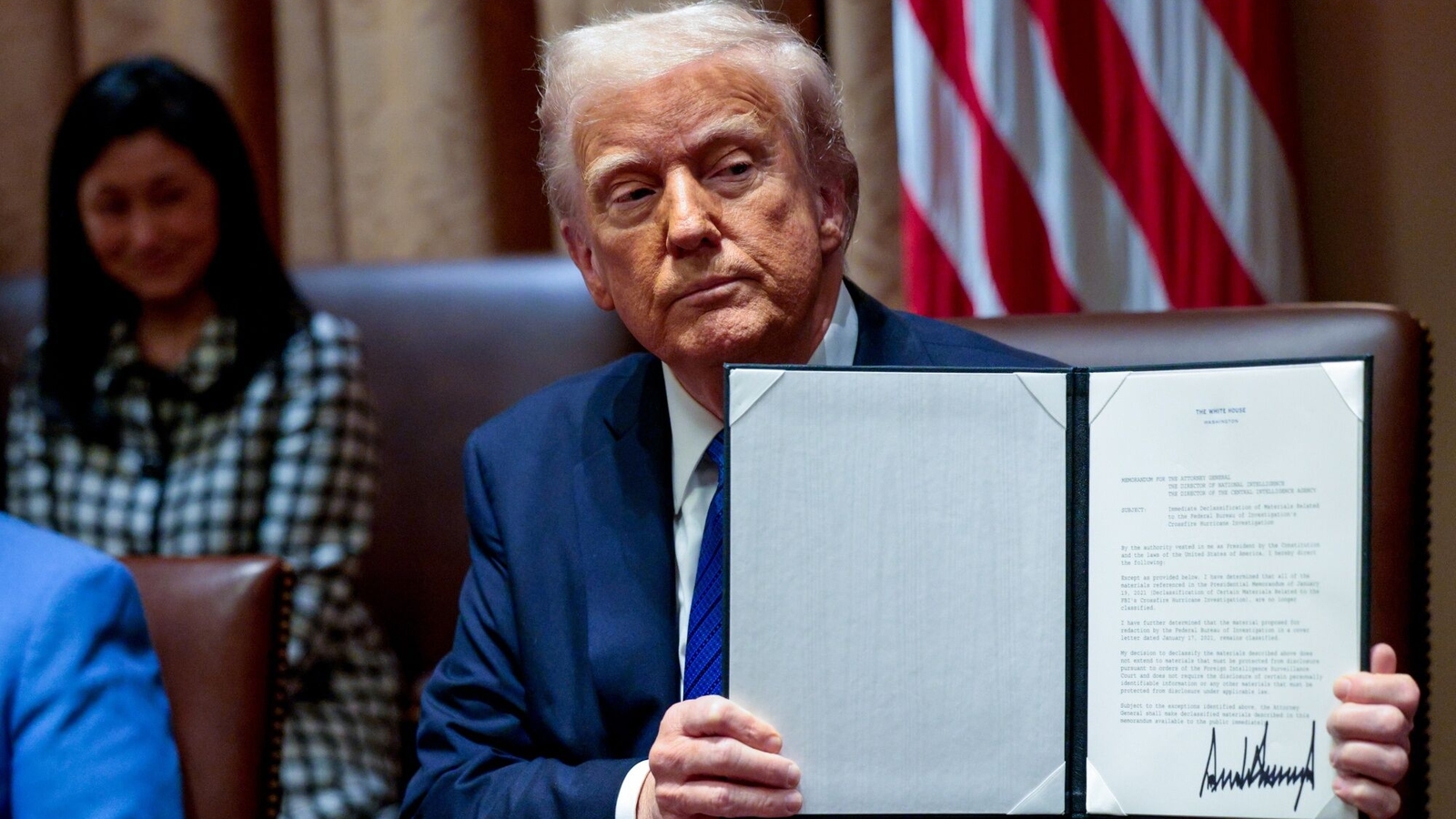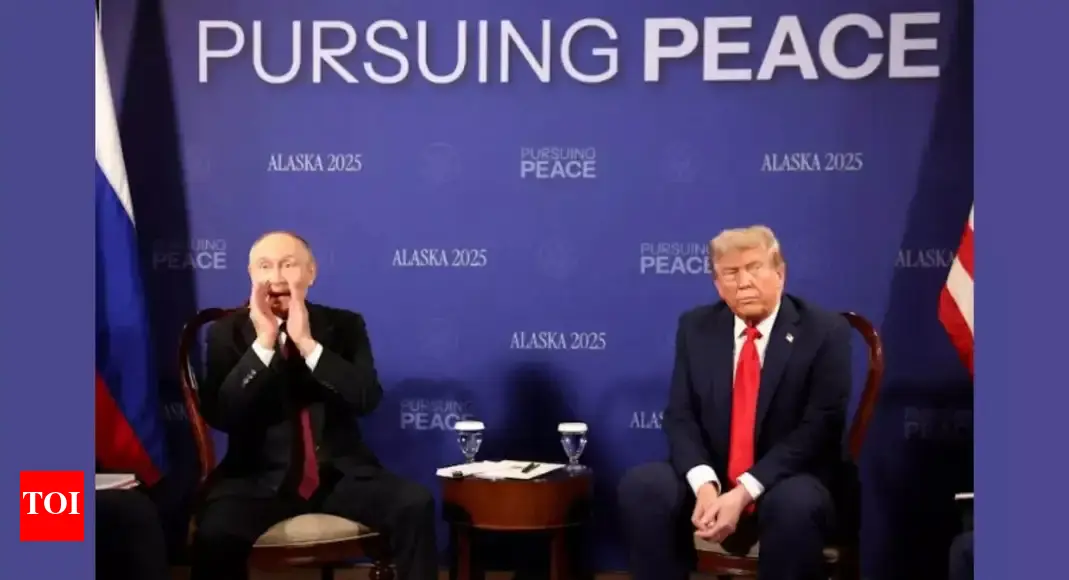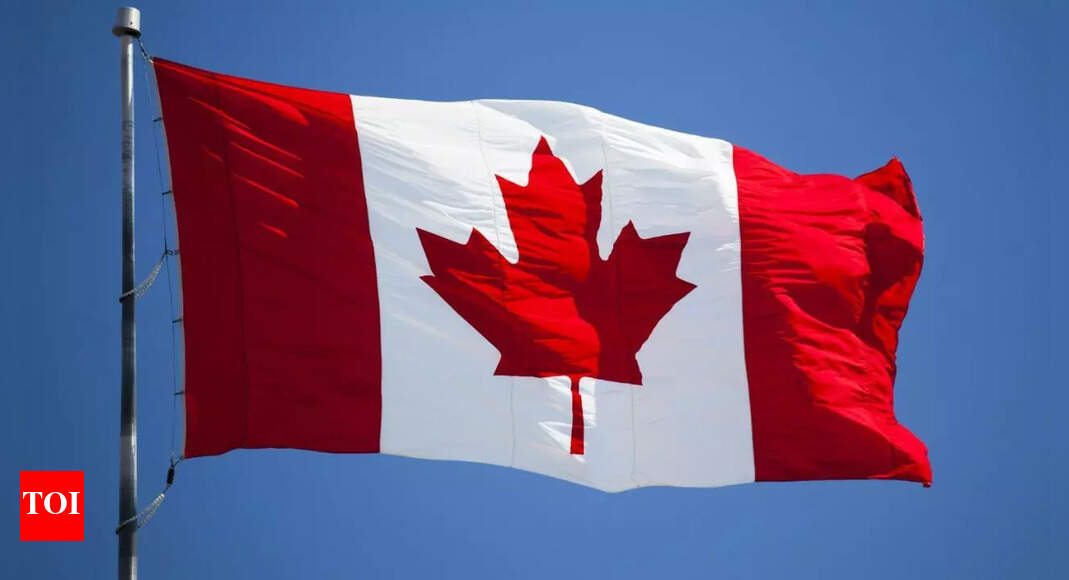President Donald Trump, citing practices in countries like India and Brazil, where voter identification is linked to biometric databases, signed an executive order on Tuesday to overhaul the US election system.

The executive order states that despite pioneering self-government, the United States now “fails to enforce basic and necessary election protections” used by both developed and developing nations.
“India and Brazil, for example, are tying voter identification to a biometric database, while the United States largely relies on self-attestation for citizenship,” the order reads.
The US President called for free and fair elections, emphasising the need to ensure votes are accurately counted and protected from fraud or illegal interference.
“Free, fair, and honest elections unmarred by fraud, errors, or suspicion are fundamental to maintaining our constitutional Republic. The right of American citizens to have their votes properly counted and tabulated, without illegal dilution, is vital to determining the rightful winner of an election,” the US President stated in the executive order.
Trump said that under the Constitution, state governments must safeguard American elections in compliance with federal laws that protect voting rights and guard against illegal voting, discrimination, fraud, and other forms of malfeasance.
He added that the United States has not adequately enforced federal election requirements, such as prohibiting states from counting ballots received after Election Day or allowing non-citizens to register to vote.
What changes does Trump’s order bring to US elections?
Voter citizenship verification: The order mandates that US citizens provide documentary proof of citizenship for voter registration. It also requires the recording of details such as the document type, issue date, and expiration when verifying citizenship.
State and federal coordination: States will now have access to federal databases to verify voter citizenship. The Department of Justice will assist in reviewing voter registration lists to ensure compliance with federal citizenship requirements.
Enforcement of non-citizen voting laws: The order stresses the need for strict enforcement of laws prohibiting non-citizens from registering or voting in federal elections. It calls for collaboration with state attorneys general to address unlawful voting by non-citizens.
Voter registration list maintenance: States are required to maintain accurate and up-to-date voter registration lists, in line with the National Voter Registration Act and the Help America Vote Act.
Support for state eligibility verification: States will gain access to federal databases, such as the Social Security Number Verification and Death Master File, to verify voter eligibility. The secretary of defence will also update the Federal Post Card Application to include proof of citizenship and state voting eligibility.
Election Assistance Commission reforms: States that fail to comply with federal election laws, including those requiring documentary proof of citizenship for voter registration, will lose federal funding. The order also mandates updates to the voluntary voting system guidelines to prevent fraud and mistakes in the voting process.
Prosecution of election crimes: The attorney general will prioritise action against election-related crimes such as fraudulent registration and voter fraud. States are encouraged to share information on suspected violations to aid enforcement.
Voting system security: The order prohibits non-citizens from participating in the administration of federal elections, including handling election equipment or ballots. It also calls for a review of the security of electronic voting systems, especially those connected to the internet, to prevent unauthorised access or malicious interference.
Election Day compliance: States must adhere to the federal Election Day deadline, preventing the counting of ballots received after this date. Compliance with this deadline will be a condition for receiving federal funding.
Preventing foreign interference: The order prioritises efforts to prevent foreign interference in US elections, including prohibiting foreign nationals from influencing elections through financial contributions or other means. The attorney general will take steps to enforce laws that restrict foreign influence.




